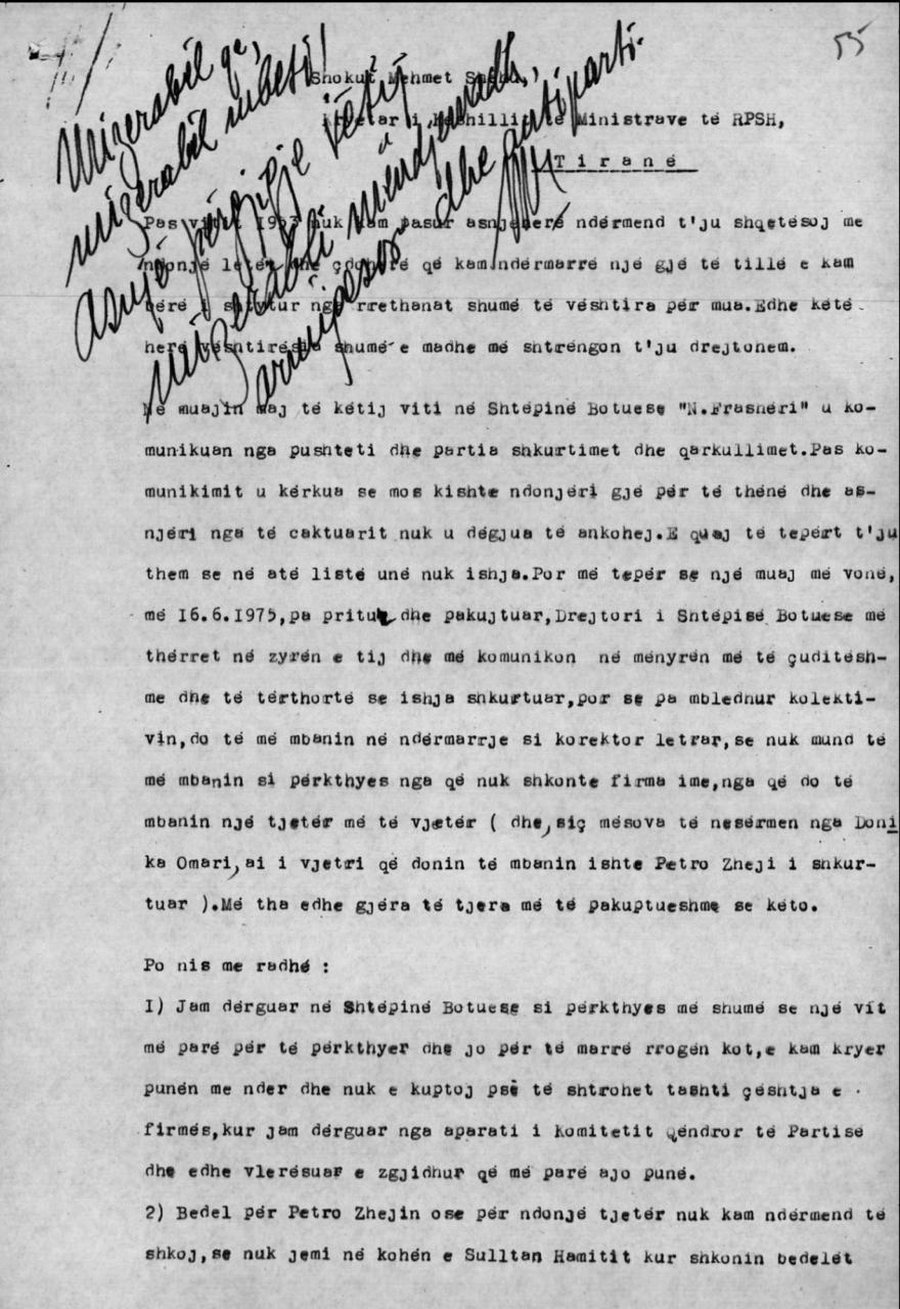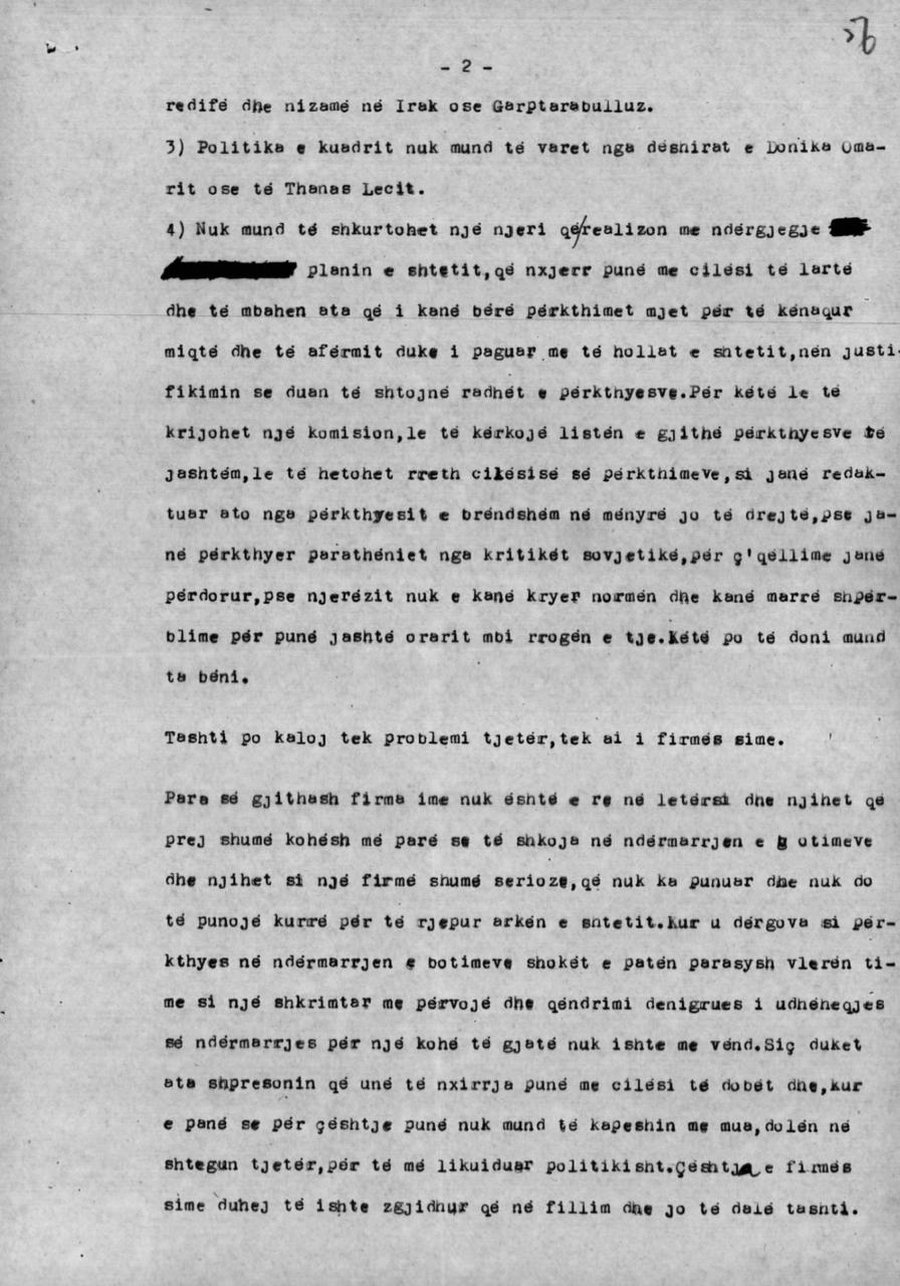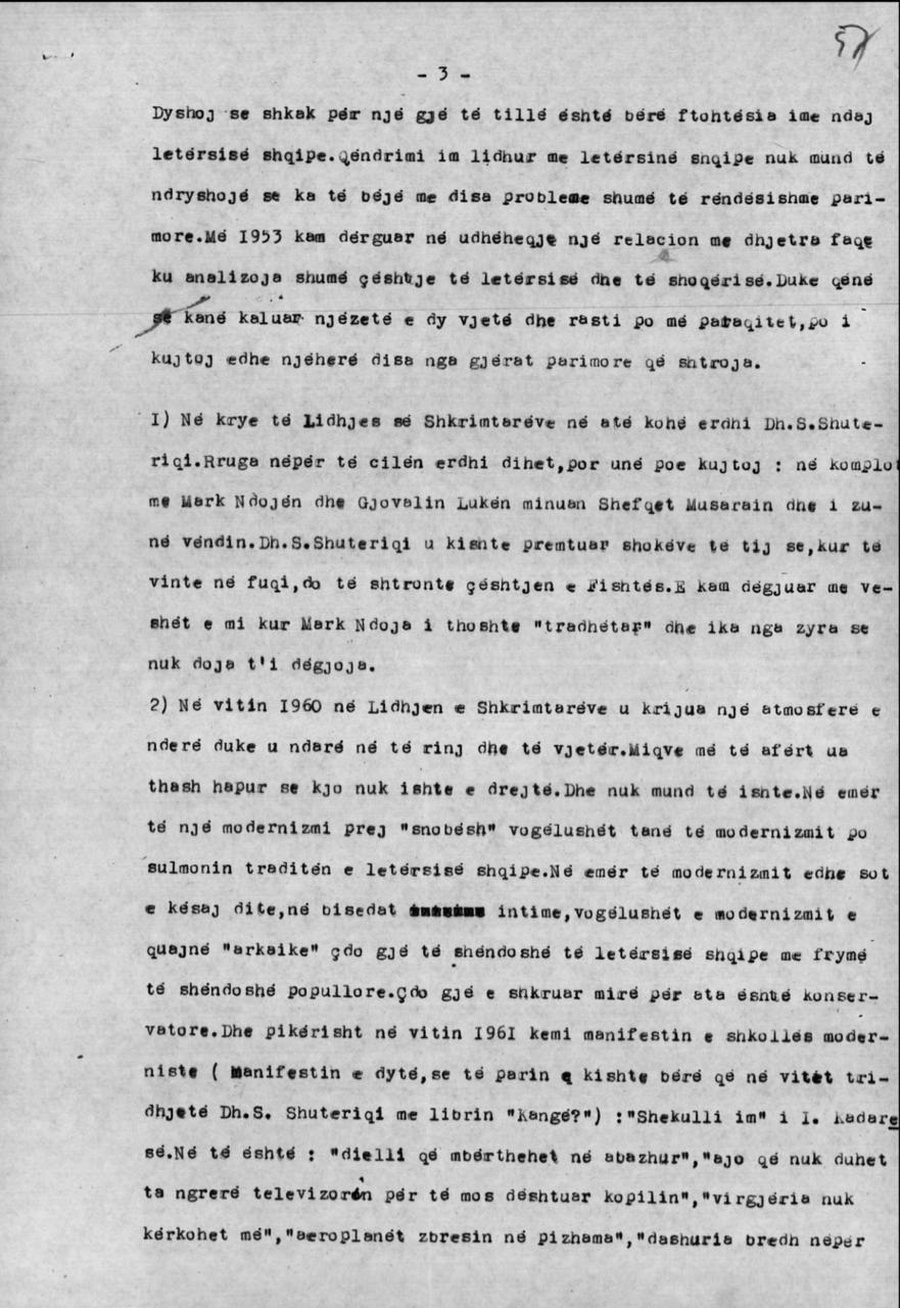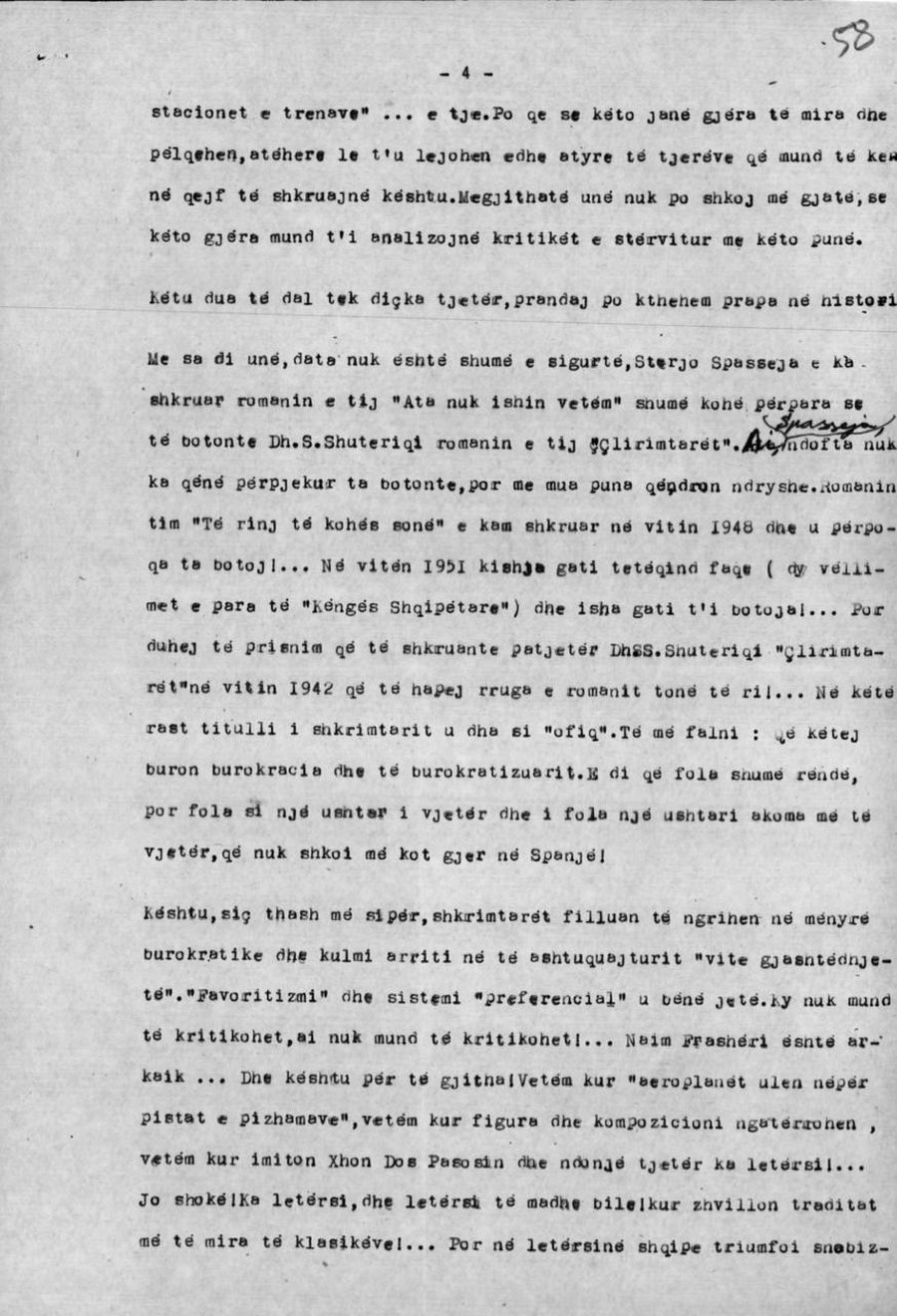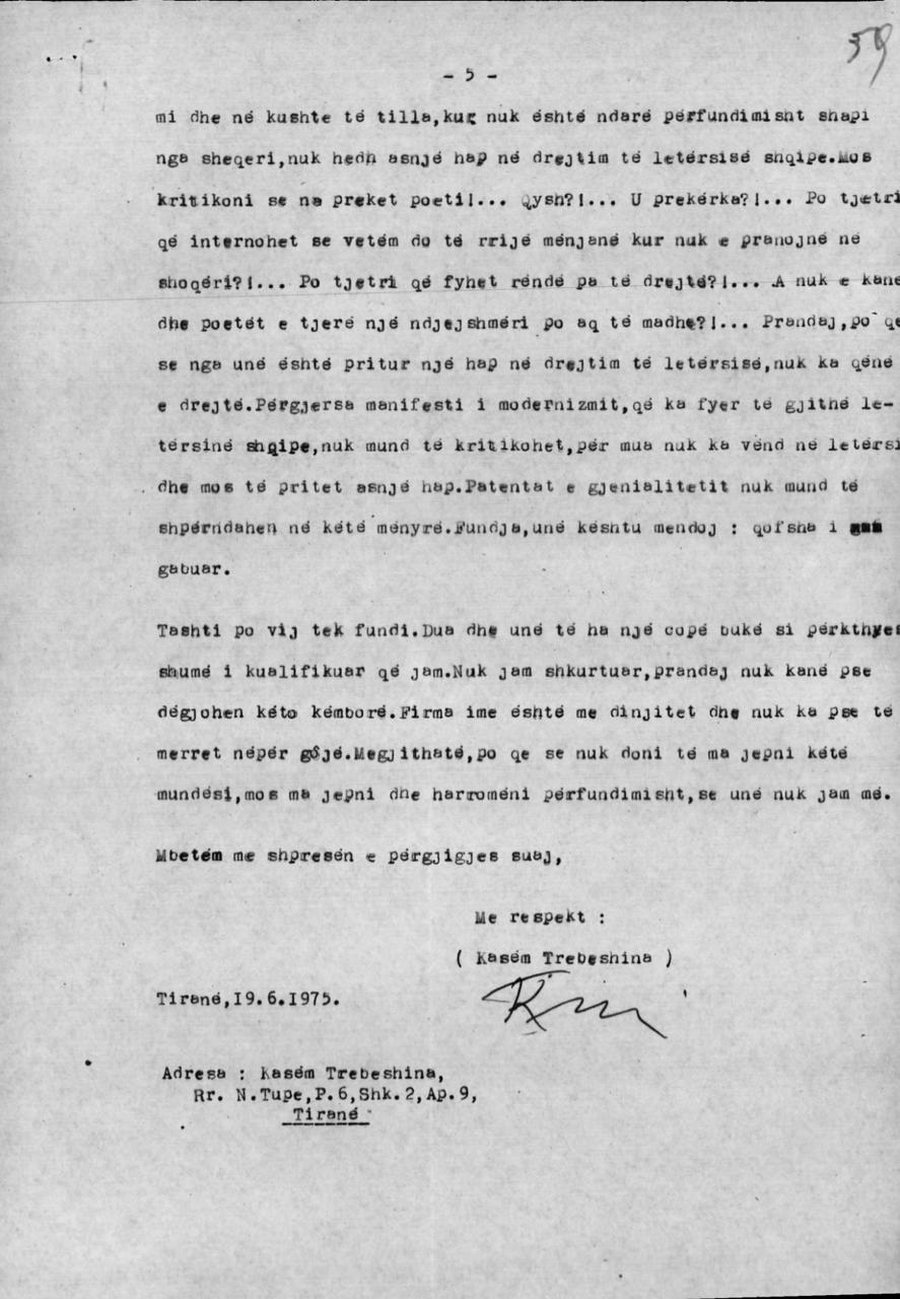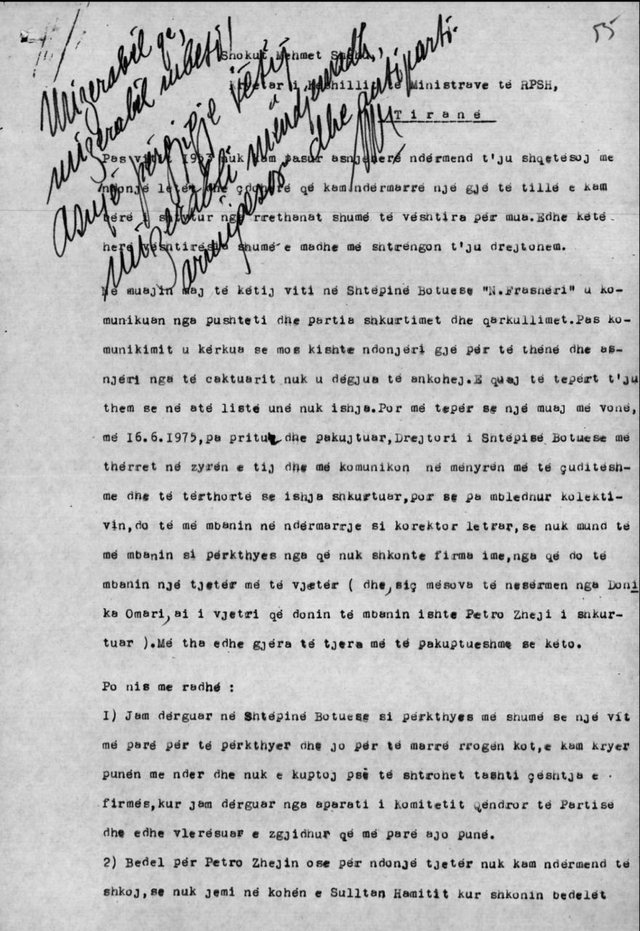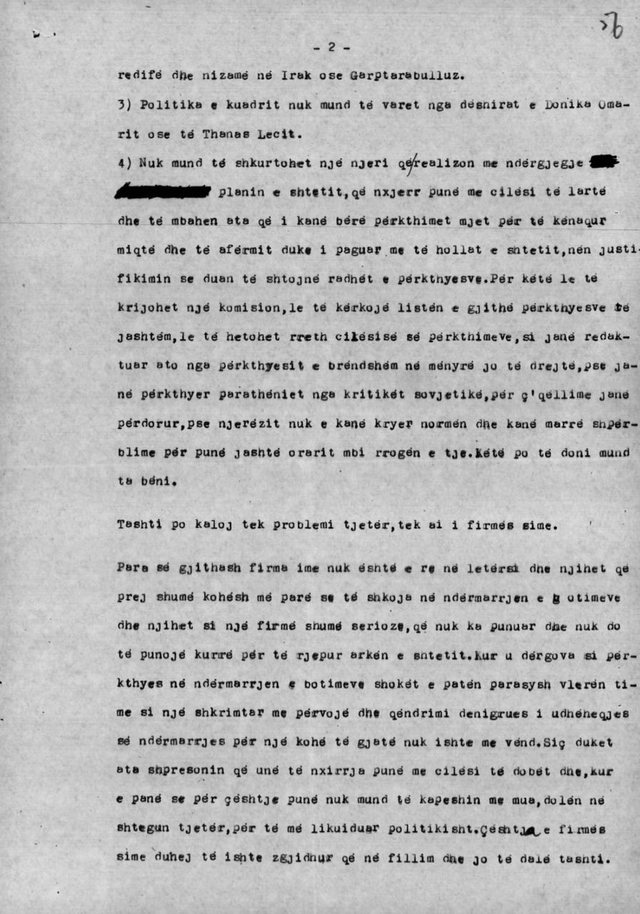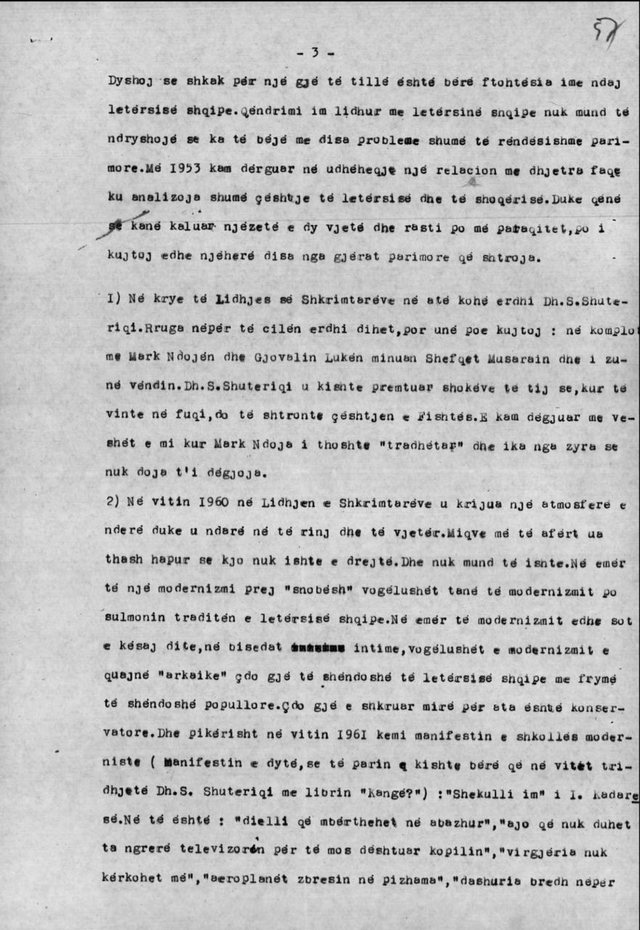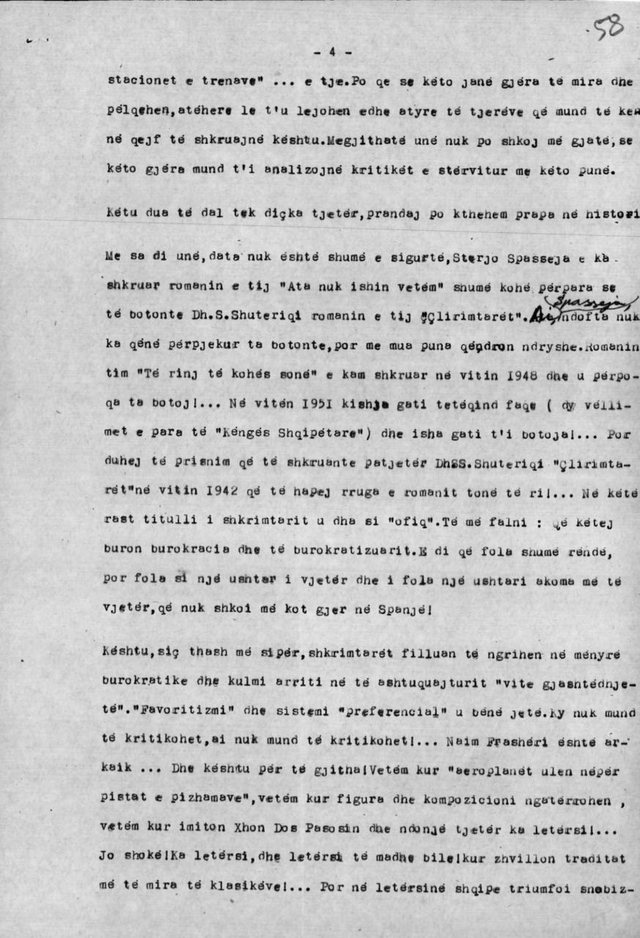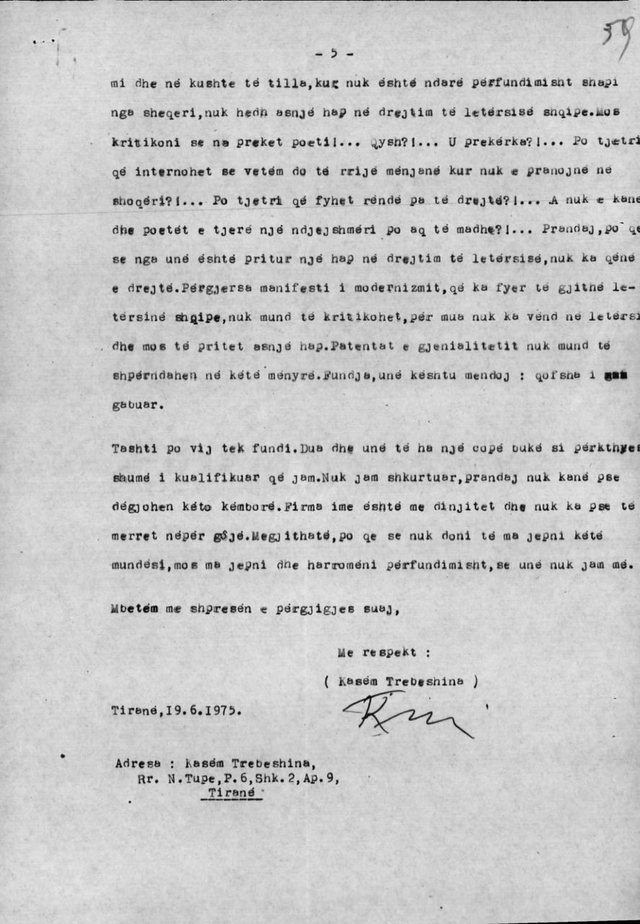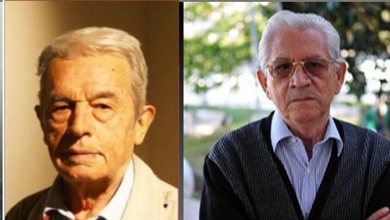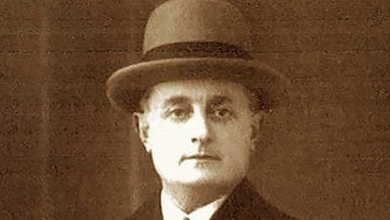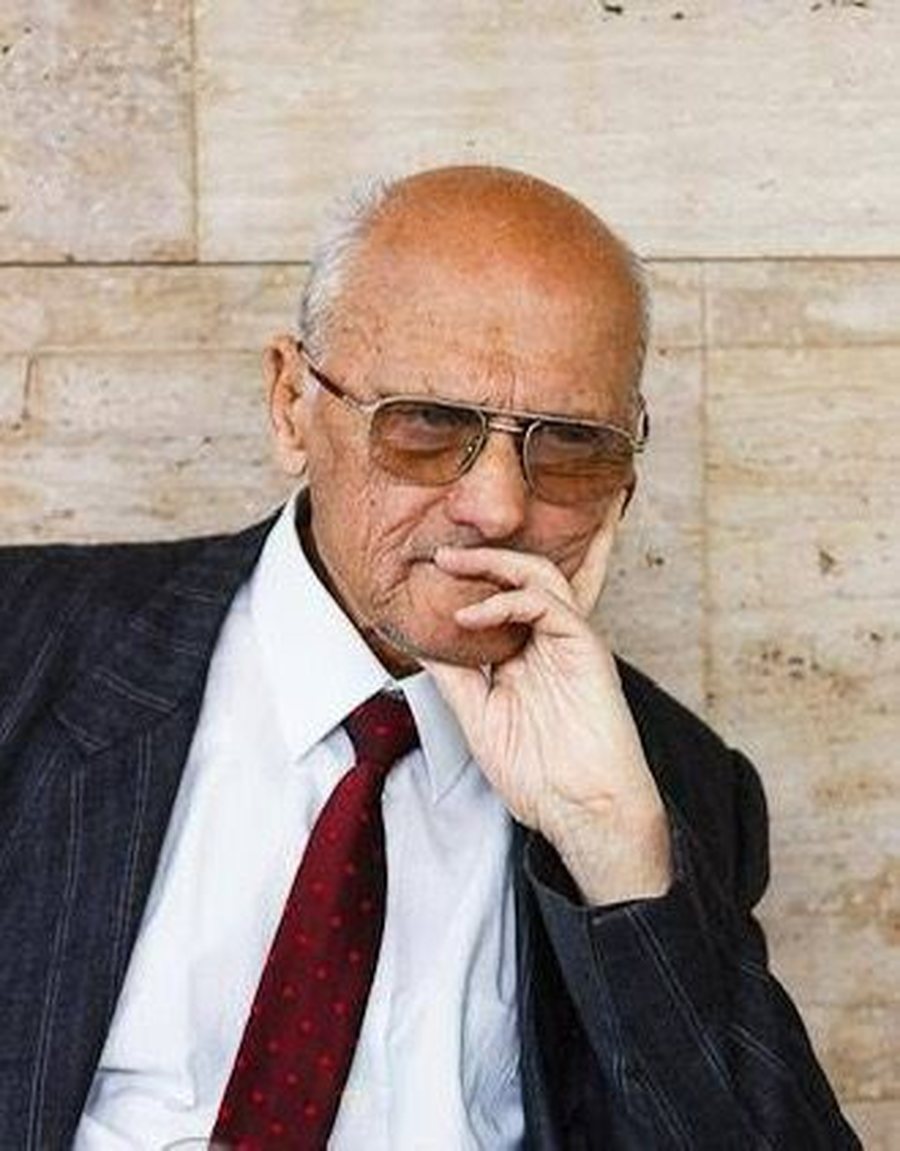
Kasem Trebeshina, for decades one of the most marginalized writers in Albanian literary life, considered the only dissident of communist Albania, addresses one of the most powerful men in the regime, Mehmet Shehu, his letter about his unfair dismissal from his job as a translator at the "Naim Frashëri" Publishing House.
In it, Trebeshina denounces the situation at the Publishing House and his exclusion as a translator for political reasons. He then elaborates on his reflections on Albanian literature and relations with literary institutions, criticizing their leaders, such as Dhimitër Shuteriqi and even Ismail Kadare, whom he accuses of being “little modernists” of Albanian literature.
In the letter, Trebeshina does not simply ask for reinstatement, but for recognition and respect for his value as a writer and translator.
Text:
Letter from Kasem Trebeshina to Mehmet Shehu, 19.6.1975
Comrade Mehmet Shehu,
Chairman of the Council of Ministers of the Republic of Albania,
Tirana
After 1953 I never intended to bother you with any more letters, and every time I have undertaken such a thing I have done so under very difficult circumstances for me. Once again, this very great difficulty compels me to address you.
In May of this year, the government and the party announced the layoffs and turnovers at the “Naim Frashëri” Publishing House. After the communication, it was requested that no one had anything to say and none of those appointed were heard to complain. I consider it unnecessary to tell you that I was not on that list. But more than a month later, on 16.6.1975, unexpectedly and unexpectedly, the director of the Publishing House called me into his office and communicated to me in the strangest and indirect way that I had been laid off, but that without gathering the collective, they would keep me in the company as a literary proofreader, that they could not keep me as a translator because my firm was not doing well, so they would keep another older one (and, as I learned the next day from Donika Omari, the older one they wanted to keep was Petro Zheji, who had been laid off). He also told me other things that were even more incomprehensible than these.
I'll start in order:
1. I was sent to the Publishing House as a translator more than a year ago to translate and not to receive a salary in vain. I have done the work with honor and I do not understand why the issue of the firm is now being raised, when I was sent by the apparatus of the Central Committee of the Party and was already evaluated and selected for that job.
2. I do not intend to go to the palace for Petro Zheji or anyone else, because we are not in the time of Sultan Hamit when the palace guards and Nizams went to Iraq or Garptarabulluz.
3. The policy of the cadre cannot depend on the wishes of Donika Omar or Thanas Leci.
4. One cannot lay off someone who is fulfilling the state's plan with honor, who produces high-quality work, and keep those who have made translations a means to please friends and relatives by paying them more state money, under the excuse that they want to increase the ranks of translators.
For this, let a commission be created, let a list of all foreign translators be requested, let an investigation be conducted into the quality of the translations, how they were edited unfairly by domestic translators, why the prefaces were translated by Soviet critics, for what purposes they were used, why people did not fulfill the norm and received bonuses for overtime work on top of their salary. You can do this if you want.
I'm now moving on to the next problem, that of my firm.
First of all, my firm is not new to the letters and has been known for a long time, before I went to the publishing company, and is known as a very serious firm, which has not worked and will never work to rob the state treasury. When I was sent as a translator to the publishing company, my comrades took into account my value as a more experienced writer and the denigrating attitude of the company management for a long time was no longer appropriate. Of course, they hoped that I would produce work of poor quality and, when they saw that they could no longer catch me on work issues, they took another path, to liquidate me politically. The issue of my firm should have been resolved from the beginning and not come up now.
I suspect that the reason for this is my coldness towards Albanian literature. My stance on Albanian literature cannot change because it has to do with some very important problems of principle.
In 1953, I sent the leadership a report of dozens of pages in which I analyzed many issues of literature and society. Since twenty-two years have passed and the occasion is now presented to me, I am recalling once again some of the principled things I put forward.
1. At the head of the Writers' League at that time came Dh. S. Shuteriqi. The path he took is known, but I remember it: in a conspiracy with Mark Ndoja and Gjovalin Luka, they undermined Shefqet Musarai and took his place. Dh. S. Shuteriqi had promised his friends that, when he came to power, he would raise the issue of Fishta. I heard with my own ears when Mark Ndoja called him a "traitor" and I ran out of the office because I didn't want to listen to him.
2. In 1960, a dirty atmosphere was created in the Writers' League, dividing it into young and old. I told my closest friends openly that this was not right. And it could not be. In the name of a modernism of "snobs", our little modernists were attacking the tradition of Albanian literature. In the name of modernism, even today, in intimate conversations, the little modernists call "archaic" everything sound in Albanian literature with a sound popular spirit. Everything well written is conservative for them.
And precisely in 1961 we have the manifesto of the modernist school (the second manifesto, since the first one was made in the thirties by Dh. S. Shuteriqi with the book “Kangë”): “My Century” by I. Kadare. It includes: “the sun that gets caught in the lampshade”, “the one who should not raise the television so as not to fail the bastard”, “virginity is no longer required”, “planes land in pajamas”, “love wanders through train stations”… and others. If these are good things and are liked, then let them be allowed to those others who may feel like writing like this. However, I am not going to go any further, because these things can be analyzed by a critic trained in this work.
Here I want to get to something else, so I'm going back to history.
As far as I know, the date is not very certain, Sterjo Spasseja wrote his novel “They Were Not Alone” long before Dh. S. Shuteriqi published his novel “The Liberators”. Spasseja may not have tried to publish it, but with me it is different. I wrote my novel “The Young Men of Our Time” in 1948 and tried to publish it… In 1951 I had almost eight hundred pages (the first two volumes of “Albanian Song”) and I was ready to publish them!… But we had to wait for Dh. S. Shuteriqi to definitely write “The Liberators” in 1942 to pave the way for our new novel… In this case the writer’s title was given as “official”. Forgive me: this is where bureaucracy and bureaucratization come from. I know I spoke very harshly, but I spoke like an old soldier and I spoke to an even older soldier, who did not go all the way to Spain in vain!
Thus, as I said above, writers began to rise bureaucratically and reached their peak in the so-called “sixties”. “Favoritism” and the “preferential” system came into being. This cannot be criticized, that cannot be criticized!… Naim Frashëri is archaic… And so for everyone! Only when “planes land on pyjama runways”, only when figure and composition are confused, only when one imitates John Dos Passos and someone else is there literature… No friends! There is literature, and great literature even when it develops the best traditions of the classics!… But in Albanian literature snobbery triumphed and under such conditions, the sugar has not been finally separated from the sugar, it does not take a single step towards Albanian literature. Don't criticize that our poet is touched... how!... He was touched!... But the other one who is exiled because he will only remain feeling when he is not accepted in society!... And the other one who is severely insulted without reason!... Don't other poets have an equally great sensitivity?!... Therefore, if a step towards literature was expected from me, it was not fair. While the manifesto of modernism, which has insulted all Albanian literature, cannot be criticized, for me it has not put any step towards literature... and let no step be expected. The patent of genius cannot be distributed in this way. After all, this is what I think: even if I am wrong.
Now I'm coming to the end. I also want to eat a piece of bread as a highly qualified translator that I am. I haven't been laid off, so there's no need to hear these complaints. My signature is more dignified and there's no need to take it lightly. However, if you don't want to give me this opportunity, don't give it to me and forget about it completely, because I'm no longer here.
I remain hopeful for your response,
Respectfully:
(Kasem Trebeshina)
Tirana, 19.6.1975.
Address: Kasëm Trebeshina, Rr. N. Tupe, P.6, Shk.2, Ap.9, Tirana
